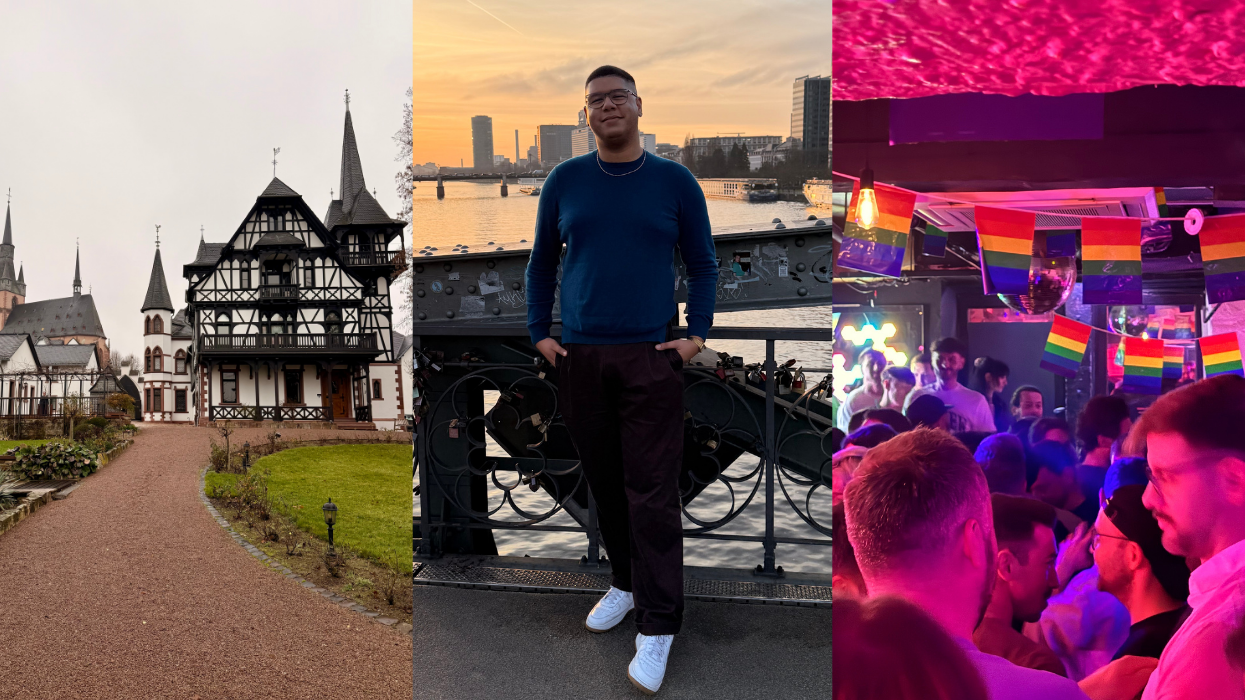12 years ago, during my senior year in high school, I lost my virginity to a man. It was something I had done out of curiosity, a rite of passage into adulthood. I wasn't in love, I wasn't dating, and I didn't have a crush. I was just horny and this is what I was told would alleviate that feeling.
When I was having sex for the first time I had no idea what I was doing. In the United States and throughout many parts of the world, we don't teach comprehensive sexuality education; we teach heterosexual abstinence, fear. This is deeply troubling and leads to shame and stigma, further perpetuating the idea that we shouldn't care about our own bodily pleasure.
So, I'll start: I hate condoms.
This year marks the 28th annual World AIDS Day--a day that affords the global community an opportunity to join in the fight against HIV/AIDS, show support for people living with HIV/AIDS, and to commemorate the lives of individuals who have died from the virus. It's a day full of love, hope, and resilience, but I am growing afraid that it is also a time when we don't talk about a full range of sexual experiences.
Working in public health, I often ask people: When did you first learn about sex? Many people communicate that they never learned about sex--at least not in a home or school-based setting--but through experience. The individuals who did learn about sex mentioned that it was either from a parent or guardian, or a health course in middle and high schools. In my home, I received a rather formulaic rundown of sex, but it was also about what sex was like with a woman, and as a black queer man that crash-course proved unhelpful.
In school, the movie Mean Girls was not as far-fetched as I would like to admit; most American schools have a Coach Carr telling adolescent girls and young women that "if you have sex, you will get pregnant, and die" then insisting that we all use condoms. The evidence is clear: condoms are an effective tool in HIV prevention and that must be understood, especially on days like today. Nonetheless, the hyper focus on condoms can also run the risk of ignoring an important personal and public health conversation: many people don't use condoms because they want to feel more pleasure.
Employment and sex can be analogous. The more employment opportunities a person receives, the better they will get at completing many tasks. With more jobs, it's easier to learn what worked and, more importantly, what did not work, and it is an opportunity to perfect transferrable skill sets. Similarly, the more sex a person has, the hope is that they will better realize what pleasure means to their own body. But it seems that we are afraid to vocalize this sentiment, and it's silence that fuels HIV and other sexually transmitted infections (STIs).
With that logic, the more sex I had, the more I understood that I used condoms out of habit--a practice I have since learned to reject when having sex. I was fully aware that sexual contact is the most common route of HIV transmission, but I also recognized that condoms did not give me pleasure. As a person not living with HIV, many screamed at me because, in their words, "I was asking for a death wish." I understood the hyperbole and inaccuracy of this statement because of innovative science and evidence, but it did cause me to question why we have sex out of fear and not because our bodies want and need it.
We are oftentimes only concerned with how to not "catch" something when we talk about sex. Let's be clear: for many people having sex, there is a deep, sometimes scary thought about what ifs: What if the condoms break? When was my last full panel screening? What if the person I am having sex with lied to me about their status? Rarely do we allow sex to just feel good.
Three months ago I decided to take better control of my sexual health by starting pre-exposure prophylaxis, or PrEP, a once-a-day pill people can take to reduce chances of acquiring HIV. If followed correctly, there is a 92 to 99 percent effectiveness and very few cases have reported HIV transmission, although more research needs to be conducted on the precise reasoning. On World AIDS Day, I hope we encourage people to be more open about their sexual health practices without being shamed and stigmatized.
That's why today I can unapologetically say that I enjoy condomless sex and it is a reason I decided to take PrEP--not because experiencing other STIs aren't possible, but because it is critical to have a conversation about how people can understand the risk and still engage in sex that feels best for their bodies.
The global community will never become an AIDS-free generation if we continue to talk about sex in hypotheticals. We must begin having hard conversations rooted in real-life experiences. If we don't have an open dialogue about what is best for our health, how to best protect ourselves, and how to reduce stigma and discrimination, then we certainly will not achieve an AIDS-free generation in our lifetime.
Preston Mitchum is a Washington, D.C.-based writer, activist, and policy nerd. He is a regular contributor to The Root and theGrio and has previously written for The Atlantic The Daily Dot, Ebony.com, Huffington Post, Hello Beautiful, and Think Progress. Follow him on Twitter to see just how much he appreciates intersectionality.






























